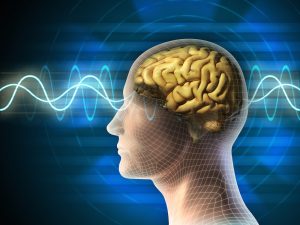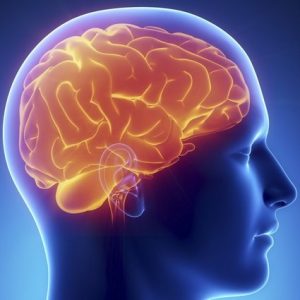Neurofeedback therapy is a non-invasive, non-pharmaceutical procedure that is effective in treating a wide range of psychological and behavioral problems. This includes alcoholism, or as it is known in recovery circles, alcohol use disorder.
What is alcohol use disorder?
On its own, drinking alcohol is not a bad thing. Many people drink as a form of recreation or a way to relieve stress. If you drink moderately – a few times a month, for example – it would not be harmful to your body.
But if you drink too much, then alcohol will accumulate inside your body. This will cause a host of problems, ranging from liver disease to changes in your behavior. When referring to alcohol use disorder, this has to do with the effects of alcohol on your mental health.
If you are suffering from this disorder, you would experience the following:
 Always having an urge to drink
Always having an urge to drink- Being unable to stop yourself from drinking
- Spending more of your time and money on alcohol
- Neglecting responsibilities at home, work, or school to satisfy alcohol cravings
- Feelings of depression, low self-esteem, or helplessness
- Soiled relationships with family and friends
Once your drinking habits have progressed into alcohol use disorder, you may find it nearly impossible to quit. Even if you’re aware of what drinking does to your physical body, social life, and career, you would still be unable to stop it.
Alcohol use disorder is classified as a mental health problem. So, it should be addressed with the appropriate treatments. Many psychotherapies and support groups are proven to be helpful, and neurofeedback therapy is a good addition to any treatment program.
What is neurofeedback therapy?
 The cells in your brain, called neurons, work by sending and receiving electrical signals. Combinations of these signals compose your thoughts and emotions. Depending on your state of mind, these signals can change.
The cells in your brain, called neurons, work by sending and receiving electrical signals. Combinations of these signals compose your thoughts and emotions. Depending on your state of mind, these signals can change.
These electrical impulses can be monitored using a device known as an electroencephalogram or EEG. It’s similar in principle to a heart rate monitor, but for the brain. For an EEG to read your brain activity, small wired patches called electrodes are taped to your scalp. The electrodes would sense the electrical signals produced by your brain, displaying them as wave patterns on a screen. When you feel different emotions, the pattern of brain waves would change.
Neurofeedback therapy “trains” your brain to produce more brain waves that are associated with positive emotions. That way, you can easily control your state of mind whenever you feel stressed, angry, sad, or any negative emotion. It can also help you avoid addictive behaviors that would be otherwise hard to control.
How does neurofeedback therapy treat alcohol use disorder?
When you have a condition like this, your brain wave patterns would be completely different from normal. Alcohol has already affected your brain negatively, which would throw your brain waves off the charts.
The first thing your neurofeedback therapist would do is to map your brain, then compare it with a map of a non-addicted brain. He would then see what parts of your brain produce abnormal patterns. With this information, he can create a customized neurofeedback program that would be most helpful for you.
Your therapist would then help you to coax your brain into producing the normal patterns again. Often, the neurofeedback sessions involve a special video game. In it, you won’t use a keyboard or a controller; you would use your brain to play the game.
Let’s say it’s a racing game. For the car to accelerate, you have to think in a certain way, like concentrating harder on the car on screen. This corresponds to the brain producing the proper waves. If you do this correctly, the car will accelerate. It may be hard the first few times, but over time, you would know how it feels to make the car move faster.
This kind of brain training produces immediate feedback and reward, which trains your brain to “behave” the way it should. It’s based on a principle known as operant conditioning, where rewards effectively reinforce good behavior.
Neurofeedback therapy does not just deal with compulsive drinking. It also addresses the other symptoms of alcohol use disorder, like depression and low self-esteem. These also correspond to abnormal brain waves, and neurofeedback is capable of correcting them.
Does neurofeedback therapy really work in treating alcohol use disorder?
 There is a lot of evidence from scientific research that has shown the effectiveness of neurofeedback therapy in helping people with alcohol use disorder. The technique is effective in preventing relapse and maintaining long-term sobriety.
There is a lot of evidence from scientific research that has shown the effectiveness of neurofeedback therapy in helping people with alcohol use disorder. The technique is effective in preventing relapse and maintaining long-term sobriety.
When coupled with psychotherapies and 12-step programs, studies have shown that neurofeedback therapy does improve the outcomes of people recovering from alcohol use disorder than those who received the usual treatments only. Also, neurofeedback helps recovering patients maintain alcohol-free behaviors long after their rehab is over.
Additionally, neurofeedback is quite effective in helping prevent impulsive behaviors associated with alcohol use disorder. Before therapy, patients could not help but drink, even if they didn’t want to anymore. But after a number of neurofeedback sessions, their brains are back to normal, and they are again able to learn from their past experiences with drinking. In turn, this motivates them to avoid alcohol in the first place.
Can neurofeedback therapy alone treat alcohol use disorder?
Please take note that neurofeedback therapy is not meant to be used by itself. Instead, it should be done alongside other helpful treatments, as part of a complete alcohol rehab program.
Neurofeedback therapy only addresses brain waves, which is just one of the many aspects of your body affected by alcohol use disorder. There are also social aspects, like your family dynamics, interactions with friends, and the people around your community, which need to be addressed with other forms of therapy.
Also, you may need to take medications to properly deal with this disorder. These will help you deal with unpleasant withdrawal symptoms once you begin to stop drinking.
For a comprehensive and customized treatment plan, the first step is to talk to an addiction recovery professional near you.
